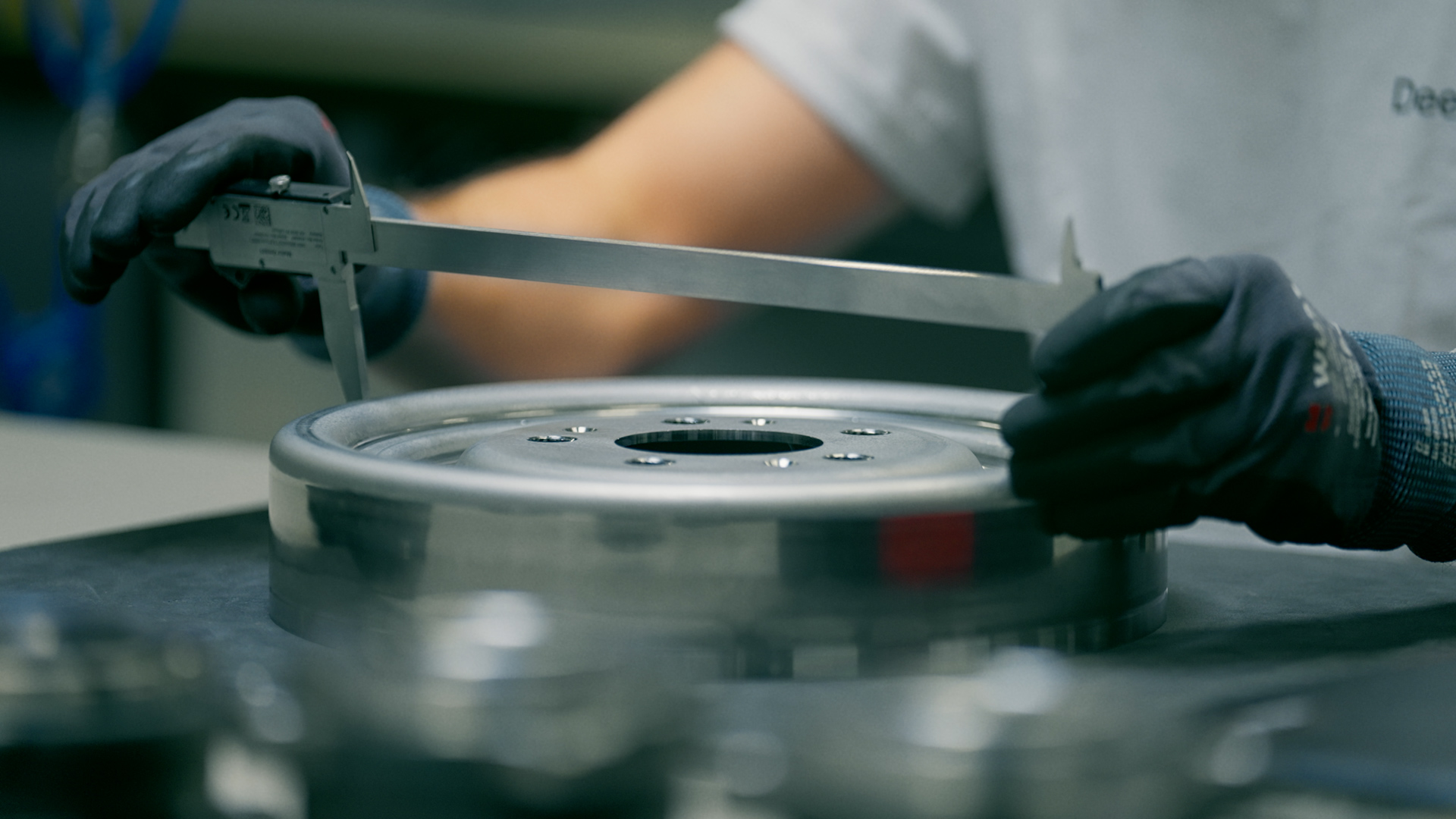News
Revolutionising automotive efficiency with silicon carbide technology: Meet Dominik MaierMeet our Engineers
Meet our Engineers
2023 / 02 / 24
At DeepDrive, we are proud to have a team of experienced and dedicated professionals who are passionate about developing innovative solutions for the electric vehicle industry. Our team includes experts from various fields, including hardware engineering and software development.
This week, we interviewed Dominik Maier, who is one of our brilliant hardware engineers with a wealth of experience in the field of inverter design.
Maier, how we lovingly call him, has been with us since the summer 2022, and has already made a significant impact on our work. However, his journey as an engineer began long before he joined our team. He studied Electro Engineering and Information Technology at TU Munich while actively participating in TUfast, the student racing tea of TU Munich, where he had the opportunity to work on various engineering projects and collaborate with other talented engineers.
He joined Tufast in 2013, the same year as Paco, our Software Engineer who we introduced last week, and he stayed with the team for an impressive five years, which is longer than most other team members.
During his time at Tufast, Maier worked on developing the first silicon carbide (SiC) inverter for TUfast, which was a significant challenge at the time. He credits his success in this project to a combination of his own studies, good mentoring, and experience working at Silver Atena, where he gained insights into power electronics.
Maier’s unmatched expertise in inverter design is a result of this unique combination of experiences. One of the biggest challenges Maier faced while developing the SiC inverter was to make it as small and light as possible. This approach was crucial to the TUfast team’s goal of building a lightweight race car, and it remains a priority for us at DeepDrive. By reducing the size and weight of our inverter, we can minimize unsprung mass and improve the efficiency of electric vehicles.
Maier’s work at TUfast brought him into contact with our Co-Founder and Managing Director Stefan Ender, who was a team manager at the time. Ender later even became a judge at Formula Student and had the opportunity to evaluate Maier’s work in 2016. Ender was impressed with Maier’s skills and wanted to bring him to Bosch where he worked at the time, but Maier decided to stay with Silver Atena. It wasn’t until 2021 that Maier was reunited with Ender and met the founders of DeepDrive at the IAA.
Maier was immediately drawn to the team’s vision and decided to join us. He was thrilled to work with old friends and colleagues and contribute to a project that he believes will be a game-changer for the automotive industry. Maier is now part of a team that includes two of our Co-Founders, Maxi, and Chris, who are responsible for hardware and software development, respectively. His expertise in SiC inverter design is crucial to our work at DeepDrive, where we are constantly working to improve the efficiency of electric vehicles. Maier’s work with SiC is fascinating and provides insight into the latest developments in the field of inverter design.
For those unfamiliar with SiC, it is a compound semiconductor material that has some unique properties that make it ideal for power electronics applications. Most conventional power electronics devices, such as transistors, are made from silicon, but SiC has some advantages over silicon, particularly in high-voltage applications. According to Maier, SiC can handle higher voltage levels than silicon, which allows for the development of thinner and more efficient devices. This technology combines the best of both worlds, with low conduction and switching losses, making it ideal for applications where energy efficiency is critical. SiC inverters like the ones Maier has developed are essential to improving the efficiency of electric vehicles, particularly in the low-load range where conventional devices like insulated-gate bipolar transistors (IGBTs) are less efficient.
However, the availability of SiC is still a problematic issue due to the complex and expensive production process. Infineon, one of the leading semiconductor manufacturers, has invested heavily in SiC technology and is working to increase its production capabilities to meet the growing demand for this game-changing material. Thus, we are very lucky to be part of Infineon’s Innovation Program which enables us to easily procure the materials.
With experts like Maier pushing the boundaries of what is possible, the future of electromobility looks bright. His expertise in Sic technology and hardware development will significantly contribute to shaping tomorrow’s electromobility by facilitating efficient and sustainable electric cars.


